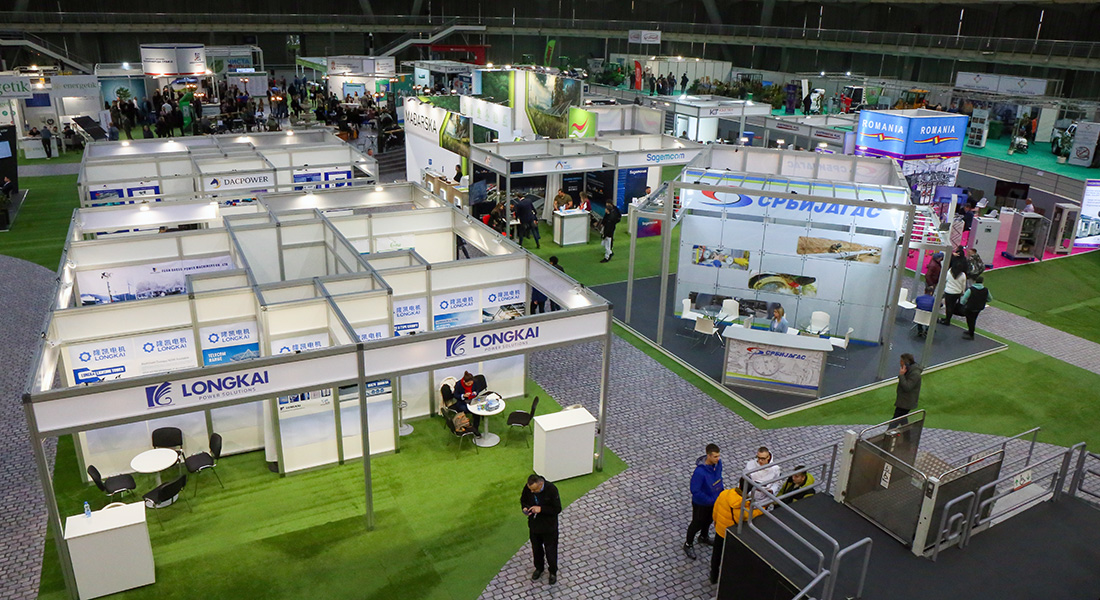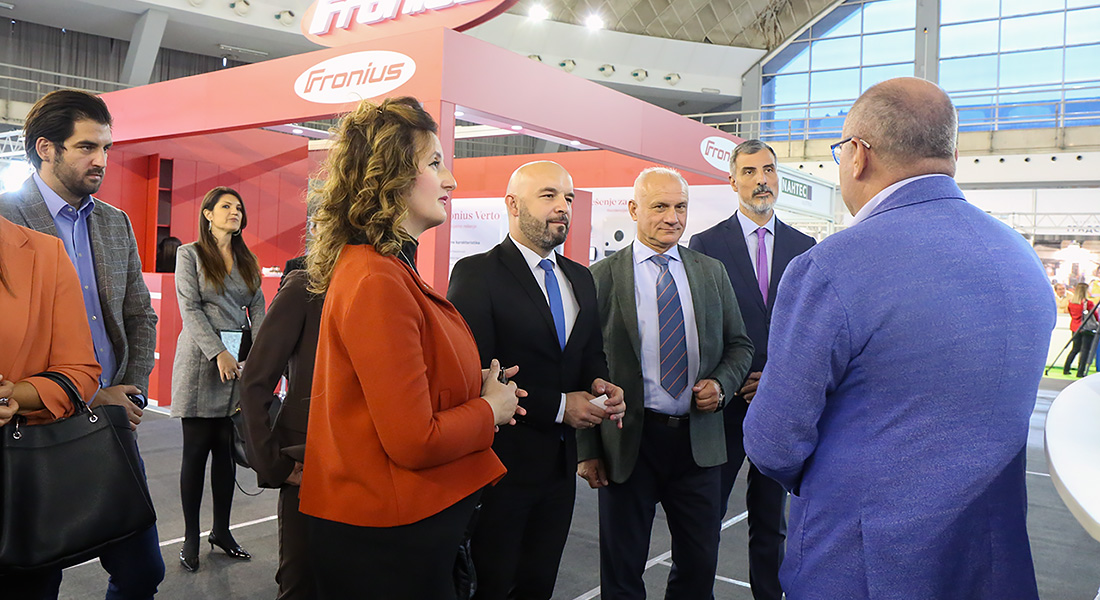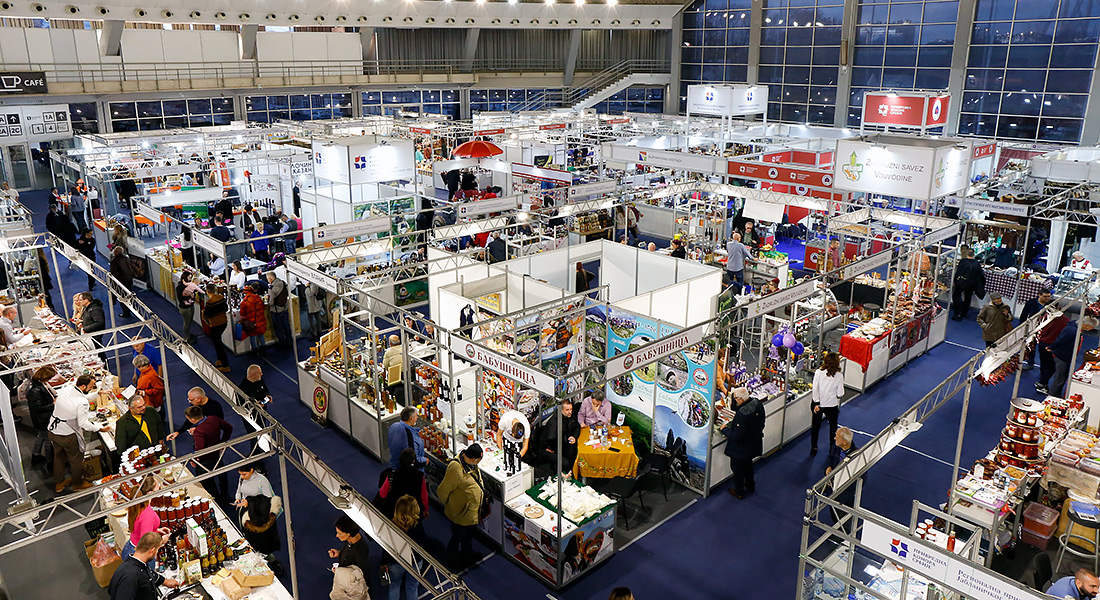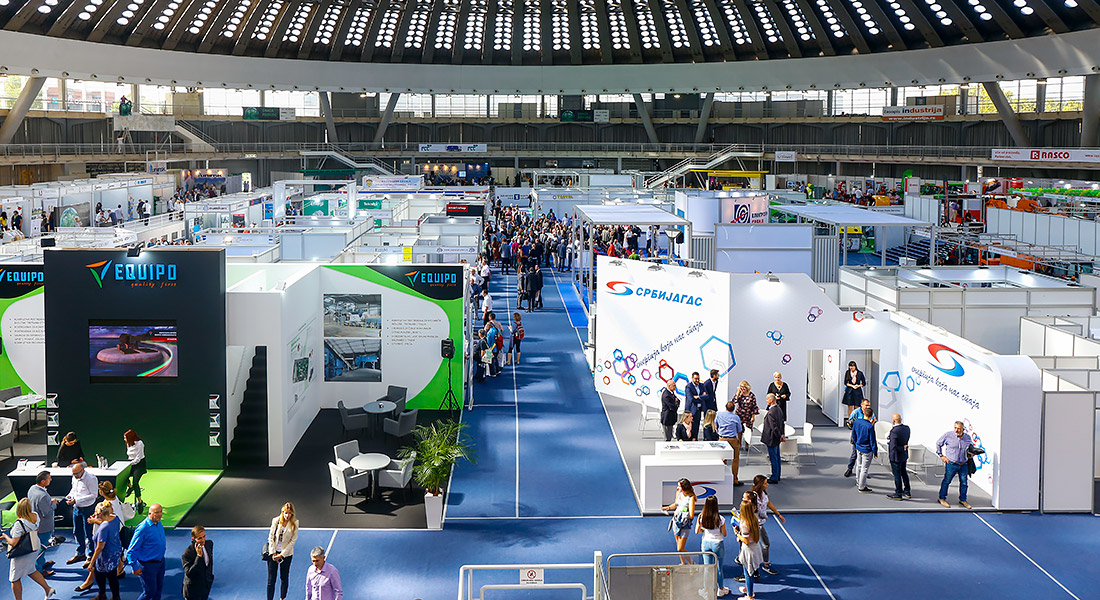Energy stability plays a key role in maintaining economic stability and the quality of life. For a region like ours, which faces a range of challenges, including political instability, economic difficulties, and complex international relations, energy stability is essential.
For the 19th International Energy Fair and the 20th International Fair of Environment and Natural Resources Protection – EcoFair, which will be presented to visitors and professionals from October 14 to 16, 2024, in Hall 3 of the Belgrade Fair, this will be the central topic.
ENERGY
Under the unique slogan “Nature Has the Message”, more than 50 domestic and international exhibitors from about ten countries will demonstrate that stable and reliable access to energy directly impacts industrial production, business operations, transportation, and the everyday lives of citizens. Without stable energy supply, the economy becomes vulnerable to production disruptions, rising business costs, and inflation. This can lead to reduced investment, increased unemployment, and a lower standard of living. In the Western Balkans, energy is also crucial for industrial sectors such as metallurgy, the chemical industry, and transportation. Additionally, every energy crisis inevitably produces a domino effect on these sectors, typically resulting in serious economic consequences.
The Western Balkans, as a region whose domestic energy system is an integral part, has a complex energy situation, largely depending on energy imports and limited domestic resources. Energy stability is often linked to political and economic relations with neighboring countries and the broader European environment. For example, dependence on Russian gas, on Central European energy flows, or any other external factor represents a significant risk. Furthermore, outdated infrastructure in many parts of the region further threatens energy stability.
All these factors are reasons why this reputable trade fair event, with UFI licensing, wishes to once again bring together experts, enterprises, companies, organizations, investors, and decision-makers from various sectors of the energy industry. The goal is to showcase the latest achievements in the industry, connect professionals across sectors, educate attendees on energy topics, and promote sustainable energy practices. The Energy Fair provides companies with the opportunity to present the latest advancements in areas such as renewable energy, energy efficiency, smart grids, energy storage, and other services and solutions that can enhance sustainability and security in the energy sector, including other innovations.
Diversifying energy sources and supply chains is a key strategy to reduce risks associated with dependence on a single energy source or supplier. In the context of global energy-political upheavals, diversification has become essential to ensure energy security.
One of the primary themes and exhibition focuses of the Energy Fair is source diversification, which involves increasing the share of renewable energy sources like wind, solar, hydroenergy, and biomass. This approach reduces dependency on fossil fuels and helps mitigate environmental impacts. In our region, for example, there is significant potential for developing hydropower, solar power plants, and wind farms. By increasing the share of these sources, countries in the region can reduce their dependence on energy imports and enhance their own energy independence.
Diversification of energy flows involves the construction of new energy corridors and interconnections between countries, in which Serbia is taking significant initiatives. All of this enhances the resilience of energy systems to political and economic pressures.
Communication is also a key component of energy diversification. This involves the integration of energy systems within the region and with broader European energy networks. By doing so, the Balkans can better use the advantages of the European energy market and enhance its own security. The implementation of smart grids and modern technologies for managing energy flows also contributes to the stability and efficiency of energy systems.
Collaboration among energy systems at both regional and international levels is essential for ensuring energy security and efficiency. Energy systems are interconnected and interdependent, and cooperation enables better resource management, cost reduction, and increased resilience to crises.
In the Western Balkans, cooperation among countries in the energy sector is crucial for securing stable supplies and integrating into the European energy market. Regional energy projects aim to connect the energy networks of countries in the region, allowing for electricity exchange, production optimization, and better utilization of renewable energy sources. Collaboration also enables joint infrastructure development, reducing costs and enhancing supply security. For instance, joint investments in gas pipelines, oil pipelines, or electricity grids benefit all participants and also increase their negotiating power with external suppliers.
In this context, besides large state-owned energy companies like Srbijagas and EPS, a number of domestic and international private companies will showcase their product lines at the fair — including solar panels, various types of cables, mini cameras for pipe inspections, and accompanying devices and tools.
SERVICE INFORMATION
The Energy and Ecology Fairs will take place from October 14 to October 16, 2024, and will be open from 10 AM to 5 PM.
The price of an individual ticket is 500 dinars, a group ticket costs 300 dinars, and the price for car parking within the fairgrounds is 200 dinars per hour.
As the sponsor of the Energy Fair, the Ministry of Mining and Energy will actively support this year’s theme – Energy Efficiency, by presenting a series of projects conducted by the Directorate for Financing and Promotion of Energy Efficiency, which recently became part of the Ministry. At their stand, through panels and direct discussions, they will place special emphasis on the energy renovation of households, residential, and public buildings.
EPS also announces a rich accompanying program at its stand throughout all three days of the fair, with panels and current educational programs for employees.
The company Telefon Inžinjering will showcase the electric vehicle “Tesla,” connecting so in the most practical way, the themes of ecology and energy.
ECOLOGY
Ecological factors play an increasingly significant role in the design and development of new energy sources. In light of climate change and stricter regulations, sustainability becomes a key criterion in selecting technologies and approaches for energy production.
When designing new energy sources, it is necessary to consider their carbon dioxide emissions, impact on biodiversity, water consumption, and other ecological factors. For example, wind farms and solar power plants have a low ecological footprint in terms of greenhouse gas emissions, but they can negatively impact local fauna and flora if not carefully planned.
In the Balkans, where there is significant potential for the development of hydropower, it is essential to balance the need for energy with the conservation of natural resources. The construction of hydropower plants can have negative effects on river ecosystems, fish migration routes, and water quality. Therefore, it is important to apply a sustainable development approach that includes thorough ecological assessments and engagement with the local community.
In such a context, the 20th Ecology Fair – Ecofair brings together various stakeholders from the environmental protection system—institutions, equipment manufacturers, distributors, recyclers, operators, landfills, local governments, utility companies, waste generators, and the professional community—to raise awareness about the importance of environmental protection, promote sustainability, and provide a platform for the exchange of ideas, information, and innovations related to ecological issues. These issues seek answers regarding appropriate sustainable practices, products, and solutions that contribute to environmental protection, renewable energy sources, recycling and waste management, energy efficiency, green building, innovative technologies, and other environmentally friendly initiatives, including financing and managing projects in the natural environment sector, investment projects, and waste management, wastewater treatment and management, industrial safety, and domestic legislation related to these topics.
The promotion of sustainable lifestyles is also essential, including practices such as eco-friendly eating, reducing plastic use, consuming environmentally friendly products, and similar.
The Ecology Fair will feature the participation of public utility companies, local governments, domestic associations and institutes, as well as several foreign companies in the utilities and recycling sectors.
The accompanying program for this event is organized by the Serbian Chamber of Commerce, with an emphasis on the Business Forum Serbia – Hungary, in collaboration with the Hepa Balkan Agency, which is bringing to the fair more than ten companies from the fields of ecology and energy. This time, the Chamber will dedicate a significant part of its program to secondary vocational schools, aiming to engage young people in environmental protection through the education system.
The local government of the city of Čačak, together with the Faculty of Technology and Metallurgy from Belgrade, will organize at their stand, a series of relevant presentations and lectures on environmental protection and “best practices”.
The Institute for Standardization will also prepare a professional accompanying program in its area of expertise.
The relationship between energy and ecology is complex and often contradictory. While energy is essential for the development and prosperity of societies, its production and consumption can have serious environmental consequences. Fossil fuels, which have long been the primary energy source, are responsible for most greenhouse gas emissions, contributing to global warming and climate change. On the other hand, the transition to renewable energy sources represents a solution that can align energy needs with environmental goals. However, even renewable sources have their challenges and environmental aspects that need to be carefully considered.
Energy and ecology can be harmonized through the concept of sustainable development, which involves using energy resources in a way that does not threaten natural ecosystems or future generations. This includes energy efficiency, reducing emissions, developing green technologies, and promoting sustainable energy consumption. In our circumstances, this balance is particularly important given the wealth of natural resources and the significance of ecosystems for local communities and the economy. Establishing sustainable energy practices can contribute to both environmental conservation and the energy security of the region.
It is clear, and this is the essence of this fair concept, that the key factors in designing the energy future of a region like ours, while respecting all environmental standards, include: Diversification of energy sources, which means reducing dependence on fossil fuels by increasing the share of renewable energy sources such as solar, wind, and hydro energy;
Energy efficiency, through the application of technologies and practices that reduce energy consumption in all sectors, including industry, transport, and households; Biodiversity preservation, which involves careful planning and construction of energy facilities to minimize negative impacts on ecosystems and biodiversity; Reduction of greenhouse gas emissions, through the introduction of measures to reduce CO2 and other pollutants via carbon capture technologies, use of cleaner energy sources, and transition to sustainable practices; Development of infrastructure for renewable sources, which includes building and modernizing networks for integrating renewable energy sources, such as smart grids and energy storage; Regional cooperation, through joint development of energy projects and infrastructure among countries in the region to optimize resources and reduce ecological footprints; Promotion of sustainable transport, encouraging the transition to electric vehicles and developing infrastructure for alternative fuels that have a lower environmental impact; Inclusion of local communities, meaning engaging local communities in the decision-making process to ensure that energy projects meet the needs and interests of the population and minimize ecological risks; Adaption to climate change, through planning energy systems that take into account future climate changes and resilience to extreme weather conditions; Support for innovation and research, which means encouraging the development of new technologies and innovative approaches in energy that reduce ecological impact and increase sustainability.
Together, these factors create a framework for planning an energy future that is environmentally sustainable and tailored to the needs of the region.






